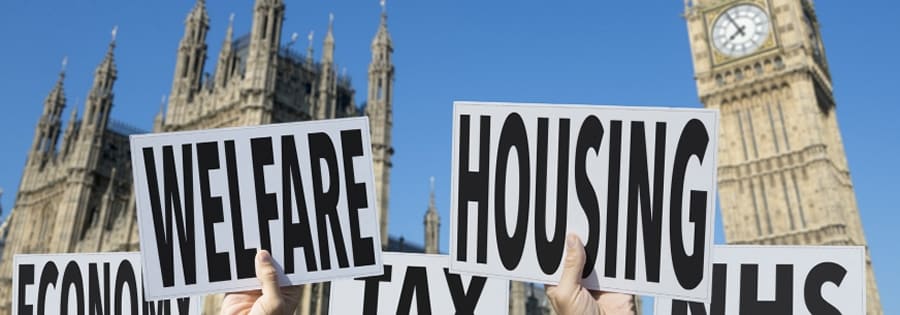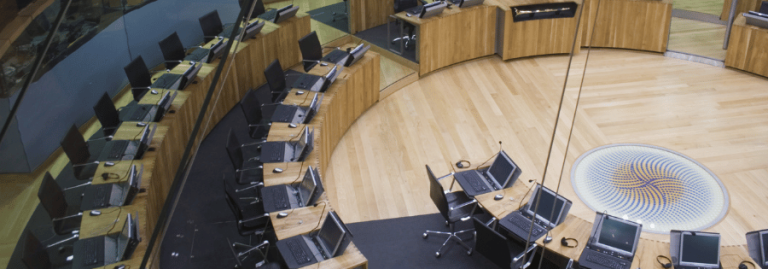Government immigration policy toughens up
So far this year there have been several indications that government immigration policy – especially in relation to “small boat” arrivals, is toughening up. Among the measures discussed below are more limited rights for asylum seekers who arrive through irregular routes, sending failed asylum seekers abroad (but not to Rwanda) and a new “Border Security Command” heralded in a Bill going through parliament.
Meanwhile, there is little evidence that the deterrents are working. Small boat arrivals for the first four months of this year – even before the end of April – are running at record levels.
Reduced rights for asylum seekers who arrive irregularly
In February, the government amended the “good character” guidance for handling citizenship applications so that individuals who arrived in the UK “illegally”, especially via “dangerous journeys” like small boat arrivals, will “normally” be refused citizenship, though exceptions and discretion can be applied.
Most affected are thousands of people already in the UK who have endured the asylum system and were eventually recognised by the Home Office as in need of protection. They have then held refugee status for five years before successfully applying for settlement in the UK. Some will have saved towards the huge fee to apply for naturalisation. Only now do they find that their applications will be blocked.
One of these is a 21-year-old Afghan refugee who arrived in the UK aged 14, after fleeing the Taliban and being smuggled to Britain in the back of a lorry. He is making the first legal challenge to the new rules. The Home Office continues to be vague about “mitigating circumstances” which would allow applications to be granted. Clearly, without a clear indication of whether an application will be successful or not, people will simply not be prepared to risk the extortionate fee to apply.
Solicitor Colin Yeo explains why denying citizenship to refugees matters so much: “It denies equality and integration. It means refugees can never be one of us.” He adds: “It is a betrayal of the fundamental principle of equality. It says to refugees ‘you can never be equal, you will always be less than the rest of us’. No matter how long they live in our country, they can never be one of us. It is the ultimate anti-integration measure.”
The backlash to the change was massive, including international coverage and editorials in the Observer and Independent. A letter with 147 signatories including the Unison general secretary was sent to the Home Secretary asking her to reconsider.
The British Medical Journal, in an opinion piece, said that “Preventing refugees from being recognised as British citizens is a regressive step for the UK.” It adds: “Imposing this policy change means the government is effectively handpicking who is allowed to be an equal member of our society and who will be excluded from ever truly belonging. By refusing refugees citizenship the government will be removing a vital element of long-term stability and protection. This will likely have a detrimental impact on their health and exacerbate inequities.”
In the London Review of Books, Christopher Bertram points out this ban on naturalisation seems inconsistent with the Refugee Convention, which requires that no penalty be imposed on refugees for unauthorised entry (article 31) and under which states undertake to facilitate naturalisation (article 34). He also notes that a person will be penalised for something done years before.
The Migrants Champions Network prepared a model motion for councils to pass if they disagree with the government proposals.
Yvette Cooper reviews rights to family life and refuses to allow asylum seekers to work
Ministers are also reviewing how international human rights law is being applied to allow people to stay in the UK after entering by irregular means, Yvette Cooper MP said on 30 March. She is looking into the implementation of article 8 of the Human Rights Act, which protects the right to a family life and has been used by people to argue for their right to stay in the UK.
Article 8 has been at the centre of a number of controversial asylum cases, including one earlier this year when a Palestinian family was allowed to remain in the UK having first made their application through the Ukrainian Family Scheme.
In a separate development, the Home Office replied to a letter from the Glasgow City Council leader Susan Aitken saying that the government refuses to let asylum seekers work despite the economic cost. Robina Qureshi, CEO of the Glasgow-based charity Positive Action in Housing, said the government’s approach was economically selfdefeating. Removing the ban on working would have alleviated poverty in Glasgow and across the UK.
Liberal Democrat MP Brian Mathew said that asylum seekers should be able to work “instead of leaving them in administrative limbo in hotels around the country costing the taxpayer millions.”
Government considering sending failed asylum seekers to Balkans
Failed asylum seekers could be sent to the Balkans under plans being considered by the government, the BBC reported on 22 March. Home Office officials have discussed proposals, which are at a “very early stage”, to set up overseas “return hubs” to house asylum seekers who have had their claims rejected and all appeals exhausted.
The government is also talking to authorities in France about a migrant return agreement – deporting people arriving in the UK in return for accepting people who have a family connection with the UK.
New government legislation reaches report stage
The Border Security, Asylum and Immigration Bill has completed committee stage; next will be the report stage. The Joint Committee on Human Rights had a call for evidence for its legislative scrutiny of the Bill. Free Movement’s summary of the Bill is here and AOL’s is here. The Law Society published an updated briefing on the Bill in March.
Solicitor Colin Yeo considers what amendments have been made to the Bill at committee stage, when the government gave itself wide new powers to impose conditions on a person who holds lawful leave in the UK, including electronic monitoring and other conditions.
Together with Refugees argues that “The Bill’s narrow focus on measures to ‘crack down on the people smugglers’ is unlikely to succeed even in its own terms of cutting the numbers of people crossing the Channel in small boats. And at its worst it risks prosecuting desperate people for trying to find safety in the UK.”
Back in January, the ipaper carried reports from “inside the Home Office” that mistrust had grown over Labour’s small boats plan. Insiders warned that “nobody” understood how the much-vaunted Border Security Command – that the government says will take the lead on combating people smugglers launching small boats – would operate.
Little hope for changes in the ‘hostile environment’
In April, the Home Office published a report looking at the impact of the hostile environment (officially the “compliant environment”). The report looks at the period 2021-23 and found that it was difficult to say what role Home Office activity played in people’s decisions to regularise their status or leave the UK. The report gave no indication of any government intent to reduce the hostility of the “compliant environment”.
The report included information on implementing “right to rent” checks on private tenancies in England. It says that 78 per cent of landlords had carried out checks on their recent lettings (by implications, 22 per cent failed to do so). In 2023, there were almost one million digital checks (and presumably many more non-digital ones); they led to just 155 civil penalties. The report is dismissive of concerns about the discriminatory effects on those with non-UK passports.
The Lead remarked on what it called “Labour’s ‘Go Home Van’ moment”: the Home Office released a video showing deportees – including one who was shackled – being taken from a detention centre and escorted onto a plane, then removed from the country. “We know nothing about them: not their names, their offences or where they were being taken to.”
Reactions to the direction of Labour government policy
In the London Review of Books, Daniel Trilling considers the evolution of Labour policy on immigration, contrasting the present day with a Labour policy statement in 2010, which asserted: “Every one of us needs to roll up our sleeves and get to work to build strong and tolerant communities, arguing the case for the politics of solidarity and hope, as opposed to the politics of division and defeat.”
In the Financial Times, Lord Dubs argues that “protections afforded to refugees benefit us all”.
But now, he says, “Labour believes that convincing voters it has regained control over illegal immigration is the only way to build support for a more generous system in future.”
Labour-leaning think tank the ippr warned of a “race to the bottom” on immigration policy. “Instead of deterring migration, they create long-term exclusion and insecurity for those already settled,” ippr argues. “The approach satisfies no one.”
Bylines Scotland also weighed in: “How we treat refugees matters more than ever,” it argued. “Being kind to others is a strength. It makes us happier. It’s good for the soul. Being unkind to others is a weakness. It makes us angrier. It withers the soul.”
The Morning Star quoted Public and Commercial Services union general secretary Fran Heathcote, who said: “The Home Secretary is obviously looking for ways to bring down the number of small boat crossings. The answer is to adopt, or at the very least trial, our Safe Routes policy, based on the Ukrainian style-visa system of assessing claims after people have arrived in the UK. It would destroy smuggling gangs overnight by taking away the need for refugees to take risks crossing the Channel, reducing crossings to almost zero. We stand ready to assist.”
How can immigration reform campaigners best engage with the Labour government?
Solicitor Colin Yeo, in a slightly despairing review of the prospects for influencing the government, concludes that ministers, special advisers and civil servants need practical, deliverable, politically feasible ideas. “But our tiny sector just isn’t structured to deliver those ideas in a convincing way,” he suggests. “We just have to leave it to the wide and diverse range of organisations each working in their little silo.”
Martha Gill, in The Guardian, argues that we should present immigration as a success story. For example, employment rates for migrant men of working age stand at 82 per cent, higher than for UK-born men, at 78 per cent. And a 2023 study found 39 per cent of the 100 fastest-growing companies in Britain have an immigrant founder or co-founder, even though the group makes up just 14.5 per cent of the population. There is less segregation than there used to be, and more multi-ethnic families. Foreign-born people are less likely to be in prison. With more examples cited.




